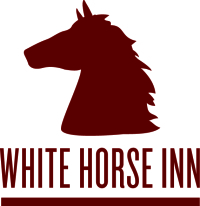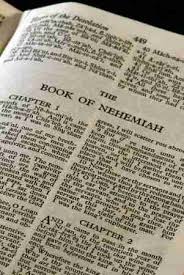 The Fifty-Sixth in a Series of Sermons on the Gospel of John
The Fifty-Sixth in a Series of Sermons on the Gospel of John
From the period of time Jesus time spent in Jerusalem during the Feast of Booths (the previous Fall), until the night of his arrest on the eve of the Passover (in the Spring), the religious leaders of Israel have been plotting to kill him. One of Jesus’ own disciples (Judas) had approached certain members of the Sanhedrin with an offer he knew they could not refuse. In exchange for thirty pieces of silver, Judas was willing to direct the Sanhedrin to the ideal place where they could arrest Jesus. Once the Sanhedrin accepted Judas’ offer, he then led them (along with Roman soldiers and temple guards) to the Garden of Gethsemane, where Judas knew Jesus and his disciples would have gone after celebrating the Passover together. To everyone’s amazement, Jesus voluntarily surrendered himself and was soon on his way to appearances before the high priest, and then before the Roman governor, Pontius Pilate. Jesus had done nothing wrong, had broken no laws, and was perfectly obedient to the will of his Father. But his obedience will take Jesus before the magistrate and will end in a sentence of death.
As we continue our series on the Gospel of John, we are currently working our way through the so-called “Passion” narrative of John (chapters 18-19). Jesus has left the upper room, where he celebrated his final Passover with the disciples. After praying for himself (John 17:1-5), for his disciples (vv. 6-19), and then for us (vv. 20-26), Jesus took his disciples across the Kirdron Valley to a small walled-in garden on the slopes of the Mount of Olives–a place known as Gethsemane. After Jesus and his disciples entered the garden, while Jesus was praying for strength for the horrific ordeal which lay ahead, his disciples fell asleep, leaving Jesus alone when he needed them most. Struggling with the awareness of the painful suffering he must endure the next day, Jesus petitioned his Father–“if it be your will, may this cup pass from me.” “If there be some other way. . .” There is no other way. Jesus prayed to his Father, “not my will, but thy will be done.” Jesus will suffer and die so that the guilt of our sins might be taken away.
About this time, Judas, who left the upper room early, went to inform the Sanhedrin that Jesus and his disciples were going to Gethsemane to pray, and that this would be the ideal spot where the Sanhedrin could find Jesus and arrest him. The garden was small, it was surrounded by a stone wall, and Jesus and his closest disciples would not be expecting to be arrested there, of all places. Following Judas’ direction was an arrest mob, described by John as “a band of soldiers and some officers from the chief priests and the Pharisees . . . with lanterns and torches and weapons.”
Fearing trouble–that Jesus would perform a miracle, or evade arrest (as he had done on several occasions earlier during the Feast of Booths), a detachment of Roman soldiers was present, as were the temple police (who worked closely with the chief priests). According to John (chapter 18:4-5), “then Jesus, knowing all that would happen to him, came forward [i.e., out of the walled garden] and said to them, `Whom do you seek?’ They answered him, `Jesus of Nazareth.’ Jesus said to them, `I am he.’” The moment Jesus identified himself, simply answering “I am he,” John, who was an eyewitness to these events, tells us that the armed mob “drew back and fell to the ground.” All Jesus need to is but identify himself–ego emi “I am he,” and those arresting Jesus cower in fear–perhaps seeing his words as an assertion of his oneness with YHWH (who identifies himself as the “I am” throughout the Old Testament), which, as we saw last time, fulfills messianic prophecy. Fearing that Jesus might attempt to escape, the mob fell to the ground, likely because they were afraid that Jesus would unleash upon them whatever power which lay behind his miracles. Jesus’ reputation as a miracle-worker was now widely known (many of the people in Jerusalem knew about Jesus raising Lazarus from the dead). The arrest mob exposes their private fear that Jesus might do something to harm them and free himself.
To read the rest of this sermon, Click Here
 Monday, November 30, 2015 at 10:39AM
Monday, November 30, 2015 at 10:39AM 










